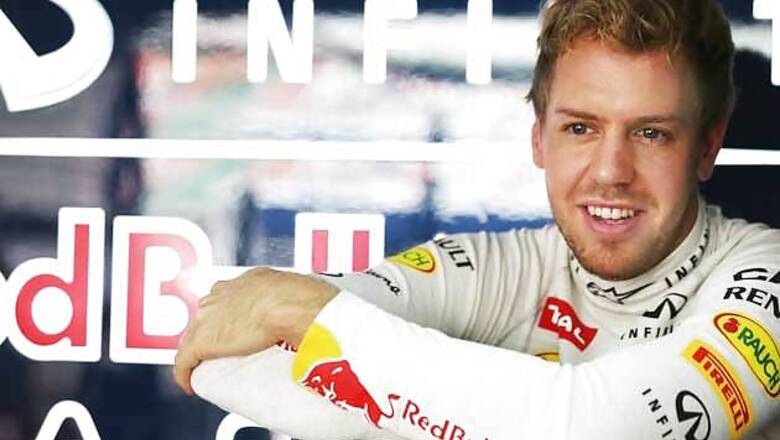
views
London: Formula One is to award double points for the last race of the season in a controversial attempt to keep championships undecided to the very end after four years of Red Bull domination.
The novelty, immediately dismissed by some angry fans as a needless gimmick, was the most eye-catching of several rule changes announced by the governing International Automobile Federation (FIA) on Monday.
The FIA said double points would "maximise focus on the championship until the end of the campaign" and had been unanimously approved at a meeting in Paris of teams in the F1 Strategy Group and Formula One Commission.
Next year's season-ender is the day-to-night race in Abu Dhabi on November 23.
With the points haul on offer, that often processional event becomes worth twice as much as Monza or Monaco - the glamour highlight of the season - and the same in scoring terms as classics like Spa and Suzuka combined.
Fans were quick to express dismay and anger on social media, with a snap poll of 100 members on the f1fanatic.com website showing 92 percent opposed to the idea.
Others pointed out that bad luck in the final race would have a far greater impact on the title outcome than at any other point in the season.
Vettel, 26, won the last nine races and wrapped up his fourth title in a row with three rounds to spare this year but he would not have been champion in 2012 had double points been awarded in the last race.
Neither would Britain's Lewis Hamilton have been champion with McLaren in 2008 nor Michael Schumacher for Ferrari in 2003, when Brazilian Felipe Massa and Finland's Kimi Raikkonen would have taken the title instead.
The FIA also announced that the principle of a global cost cap had been unanimously approved, with the aim of introducing it from January 2015.
The Paris-based body said a working group, made up of the FIA, commercial rights holder and team representatives, would be established so that regulations could be approved by the end of June next year.
Formula One has tried before to implement a budget cap, with previous proposals bogged down in argument about what should be exempt and how to police any measures in a sport full of commercial secrecy.
However, several teams are struggling to stay afloat financially in a sport where budgets range from $60 million a year to well in excess of $200 million.
A change to the system of driver numbers was agreed, with drivers in future carrying their number through their career in Formula One rather than taking a new one every year depending on where they finished.
The number one will be reserved for the world champion, should he decide to use it.
Should more than one driver choose the same number, preference will be given to the man who finished highest in the previous year's championship.
The concept is already used in MotoGP, with Italian Valentino Rossi famed for his number 46, while the late Canadian Gilles Villeneuve is still associated with the 27 on his Ferrari.
The FIA did not say what would happen to a number when a driver drops out of Formula One or whether certain particularly evocative ones might be retired.
The principle of a five-second penalty for minor infringements was also accepted for 2014, with teams to discuss how it should be applied.



















Comments
0 comment